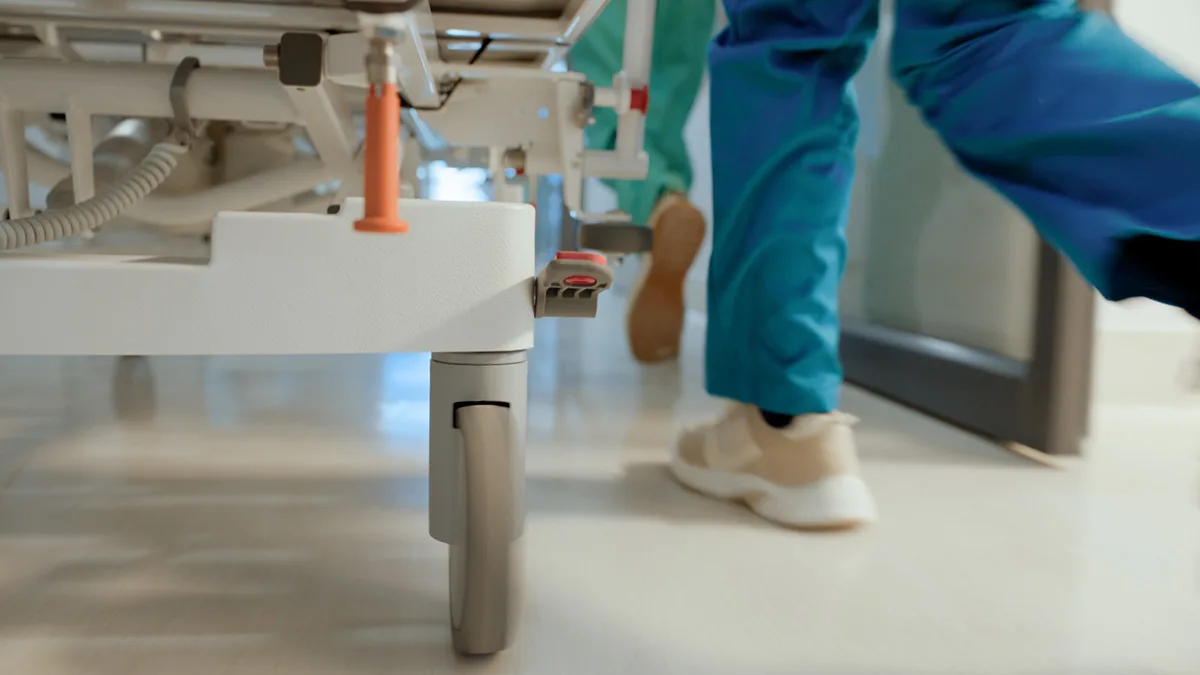
Overview
Technology can improve patient care, bulk up healthcare system operations and finances, and support value-based care initiatives.
To Improve Margins, Nonprofit Healthcare System Must Embrace Risk
Nonprofit hospitals across the United States need to find new sources of revenues, or they won’t be competitive and or able to serve their communities, given the relentless opposing pressures of tight reimbursement and simultaneous demands for adoption of expensive new technologies and better patient care.
To improve margins, healthcare system executives and boards must collectively embrace risk sharing, noted Stephen K. Klasko, MD, MBA, executive in residence at General Catalyst, the global venture capital firm with a strong investment strategy on AI-enabled transformation across industries, including healthcare delivery systems.
In 2023, General Catalyst created the Health Assurance Transformation Corp. (HATCo), which it charged with helping healthcare systems execute on transformative strategies. HATCo is investing in companies that use technology to improve patient care, bulk up healthcare system operations and finances, and support value-based care initiatives.
It is forming collaborations among its portfolio companies, healthcare systems globally, payers and governments. In October, General Catalyst announced it had raised a new $8 billion fund, of which $4.5 billion would be used to invest in companies at various stages of their lifecycle to support HATCo and two other more general General Catalyst initiatives, Ignition and Endurance.
At General Catalyst, Klasko is pursuing “creative re-construction of health care to address health inequities.” His proven track record includes having served as president and CEO of Thomas Jefferson University (TJU) and Jefferson Health in Philadelphia from 2013 to 2022as well as previous leadership roles at the University of South Florida and Drexel University.
His role at General Catalyst is to advise its diverse portfolio of digital health startups and external healthcare systems, particularly to forge new kinds of alliances.
To those hospital boards that say hospitals are not in the business of being investors or entrepreneurs, Klasko cautioned that the alternative, given the current reimbursement situation, is bankruptcy.
“You can have a good CEO and [hospital] beds that are at capacity, and still lose money,” he explained. “Your finances are struggling, and what makes you think they will get better doing the same thing as you are now? You can’t make that up with value-based care initiatives, and relying solely on technological solutions will not fundamentally change your situation.
“There’s plenty of money in healthcare,” he continued, “but not through traditional revenue streams.”
Examples Klasko cited of creative partnerships among healthcare systems, include Kaiser Foundation Hospitals, which formed Risant Health in 2023 as a nonprofit, charitable umbrella organization.
Rizant is acquiring community-based healthcare systems as part of a roll-up strategy focusing on value-based care. Its first acquisition was Geisinger Health earlier this year and it has plans to acquire several more nonprofit health systems with good balance sheets and P&Ls and give them the resources they need to succeed.
Another example is General Catalyst HATCo’s acquisition of its own integrated healthcare system, Summa Health in Akron, OH, in early 2024. The concept behind HATCo’s acquisition of Summa is that Summa would serve as a resource or laboratory of new ideas for the rest of the industry.
Other new kinds of alliances are thriving. Klasko, for example, is on the board of AVIA, an alliance of about 60 health systems that is looking for new ways to work with early-stage companies and gain opportunities to co-develop technologies in exchange for equity in startups. It has the potential not only to accelerate innovation, he said, but also speed adoption of innovations that can have a real impact.
Klasko also advises to Sheba Medical Center, the Middle East’s largest healthcare system, in Rehovot, Israel. Sheba has created a global network of healthcare systems partners who invest in and test innovative therapies and digital health technologies. Sheba’s investment strategy has paid off—technology emanating from the medical center has spawned some 108 companies, of which several have been sold at hefty profits.
Klasko also counsels General Catalyst portfolio companies such as HippocraticAI, which is using large language models to help providers screen and monitor large patient populations. The company, for example, is creating an AI Nurse named ‘Rachel’ which can take over rote tasks that nurses do not like to do.
He is also on the board of directors of Paradigm, a General Catalyst-backed company that is democratizing clinical trials by building clinical trials infrastructure leveraging community-based providers to aid in enrolling patients in and running the studies. Another of Klasko’s advisory roles is to Neuroflow, a tech-enabled behavioral health company that Jefferson invested in, which uses AI and predictive analytics to help healthcare systems manage patients with behavioral health issues.
These new kinds of relationships for healthcare systems can accelerate adoption of innovation and also help to diversify their portfolios. Healthcare systems have to get on board with this new way of thinking, or they will cease to exist, Klasko said.







